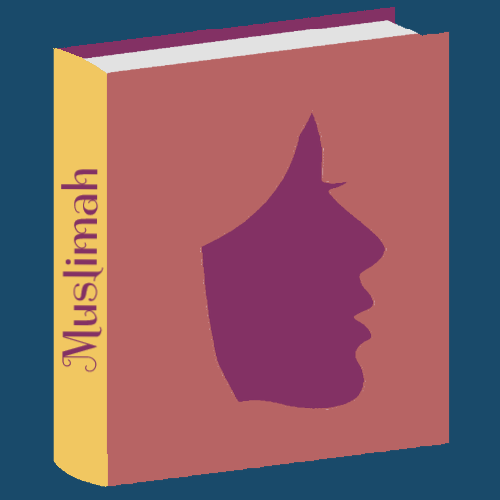
A Place to Call Home — Sepideh Samandari
—by Nasreen NasreenSepideh Samandari held the small piece of paper commending her as one of the best workers at the old age home she worked at in her hands. The sound of applause surrounded her as the elderly residents of the home beamed at her.
Her heart was pounding with joy. Sepideh had once made far more money as a physician in a distant land. But today, in Waterloo, her job working as a recreational aide held something even better than a paycheque. It finally offered her acceptance and a sense of belonging in her new country.
Sepideh’s long journey to this moment is a story of loss, compromise, and sacrifice for the people she loves. It begins in Iran.
Born in the small city of Najafabad in Isfahan province, Iran, to a religious and well-educated family, Sepideh lost her father at a very young age. Her mother worked hard day and night to provide for her and her two siblings. Oldest of all the children, Sepideh shares a deep bond with her brother and sister. As we speak about her mother, a smile crosses Sepideh’s face as she proudly exclaims that hermother left no stone unturned in making sure she received the best education possible.
It had been Sepideh’s childhood dream to pursue a career as a doctor. She always wanted to do something meaningful with her life, and what could have been better than saving people’s lives. With hard work and perseverance, she was able to crack the national medical exam in Iran to get accepted into one of the country's most prestigious universities — Isfahan University of Medical Sciences. With a glimmer in her eyes, Sepideh proudly announces that she graduated after seven years. She went on to practice as a family physician in Iran for 10 years, an achievement for which she entirely credits her mother.
Sepideh’s biggest accomplishment would not have been possible without her mother’s support and sacrifices. Given that her mother was her pillar of support and played a crucial role in Sepideh’s life, leaving her behind to move to a different country was a great deal harder than she had imagined. She could not imagine having to move away from her mother.
With a trembling voice and visibly moist eyes, Sepideh shares that nothing could have prepared her for the actual moment when she had to leave everything she loved behind. The very thought of moving away from her mother, siblings, and friends sent shivers down her spine. She was engulfed by fear and sadness. But it was a decision she had to make.
Sepideh’s husband had been offered the position of a researcher with the University of Waterloo in Ontario. The only option she had was to move to Canada with her husband and son. Being a mother herself, Sepideh found herself in a new situation — thinking more about her son and his prospects rather than about herself. Sepideh wanted her son to have more opportunities and lead a healthy and happy life.
Suddenly, the idea of uprooting her life from Iran and moving to Canada did not seem so unsettling anymore. Seeing her mother make sacrifices all of her life for Sepideh’s future gave her the strength to do the same for her son.
In June 2009, Sepideh received her immigration papers, and she moved to Canada along with her son to be with her husband. It was a bittersweet moment. She was happy for the wonderful new opportunities that would open up for her son and husband, but deep down she knew it wouldn’t be an easy change for her.
One can hear the pain in her voice when Sepideh talks about her career. Her profession was the only wealth she had accumulated over the years. And she knew before she decided to move to Canada that she would have to give that up.
She knew getting a license in Canada to practice medicine was extremely difficult since it required money that they could instead invest in their son’s education. Most importantly, the process was time consuming, and she wondered whether she wanted to take those resources away from her family. She had seen her friends who had immigrated to Canada years before her, struggle. They were still in the process of getting their medical licenses.
However, Sepideh did not let this deter her in any way. It took a while for reality to sink in, but she knew this was the moment when she could choose a different path for herself. “I did not know what it was that I wanted to do. But I definitely wanted to explore my options, she said.
Sepideh takes a long pause and lets out a sigh as she recounts her struggle of moving to a new country, especially at the beginning. Everything around is new — the language, the environment, and the culture. Her son, Sina, did not struggle at all. Just as she hoped, he excelled in school and is currently pursuing a master’s degree of Applied Science in Electrical Engineering at the University of Waterloo.
For her though, it was more difficult. “People are unsure about you and your skills, and they don’t want to give you a chance. So, you try harder than you have ever before. It takes a toll on you, both mentally and emotionally. But you try to stay strong for yourself and your family, and you keep trying.”
Familiar with English, Sepideh had learned the language when she was in middle school. Most of her university education had been in the English language. However, she struggled with conversational English. To remove that barrier, Sepideh joined a language learning program. Around eight months into the program, her teacher suggested she look into volunteering to meet people and build relationships in the community. Her first volunteer position was with the Kitchener Downtown Community Health Centre. This was followed by volunteering for different organizations including the Region of Waterloo Public Health. For Sepideh, these volunteer positions provided a stepping stone to success.
She later volunteered with the Focus for Ethnic Women in 2013 and was awarded one of their most prestigious awards — the Ari Ariaratnam Education and Training Award.
Through volunteering, she came face-to-face with the Coalition of Muslim Women (CMW) and finally became a member of the organization.
Volunteering made Sepideh realize her passion for helping older adults. When she was volunteering with the Grand River Hospital-Freeport Campus, she learned about recreation therapy and its effect and influence on the lives of older adults. Sepideh’s face lights up as she discloses this was when she realized what she wanted to do. She had found her new path in life!
Helping those in need has always been at the heart of everything Sepideh has done. Now she especially loves working with older adults. She decided to enroll in Recreation and Leisure Services at Conestoga College. Having registered in the fast-track program, Sepideh received her diploma within a year instead of two years. She graduated with a GPA of 4.0.
Sepideh landed her first job after graduation at the Community Support Connections, Meals on Wheels, as an exercise facilitator for seniors. But her goal was to work with seniors as a recreationist, and plan and implement more activities and programs in addition to the exercises. For over a year, Sepideh sent her resume to several different organizations and applied to over a hundred jobs but never got a response back.
While talking about her struggle to find a job, Sepideh’s eyes narrate a story of hopelessness. It was disheartening for her not to receive a single call for an interview in a year. She assumed she needed someone to look at her resume and approached the Working Centre for expert advice. According to the person reviewing her resume, nothing was missing. It was a blow to Sepideh’s selfconfidence, and she could not put her finger on a reason why no one wanted to hire her. “I was engulfed with the feeling of hopelessness. I was angry and felt disappointed in the system.”
It was over a year before Sepideh was finally able to secure an interview. She immediately got hired as a casual worker at a care home. But it wasn’t exactly as described in the job posting and did not relate to her degree or skill set. With work hours less than a day per week, sometimes her work only involved setting up for a program. She managed to work at the same place for 10 months, but her mental health took a hit. “I felt my hard work did not matter. No one wanted to give me a chance to prove myself. All I needed was a chance.”
While it seemed like nothing was going as planned, Sepideh did not stop trying. At one point, she held four casual jobs. After years of trying and struggling, she finally landed her current full-time position as a recreation aide in a long-term care home.
Sepideh loves helping seniors in her community. That’s what she had always wanted to do — help others and give back to the community. She has been planning and implementing different programs and activities for older adults. And, as noted earlier, she was recently recognized with an award for being one of the best workers in the facility.
She has also played a crucial role in bridging the gap between the CMW and the Iranian community in Waterloo-Kitchener. “Sepideh made the CMW more diverse. She is the door that connects the Iranian community to our organization,” says one of Sepideh’s colleagues at the organization, who has known her for over 10 years now. Her colleague further adds, “She is committed and organized, and always inspires women around her to go above and beyond to be their best.”
In Sepideh’s words, she has received more than what she could have asked for from the CMW. “Volunteering with the CMW was a great way to build relationships in the community. I have also learned several different skills that are necessary to succeed in life, including leadership qualities, organization skills, building community relations, communication, and time management, among others.”
In 2019, as part of a leadership program, Sepideh volunteered to lead the CMW booth at the KW Multicultural Festival. She also coordinated the Iranian volunteer group that included almost 30 other women for several events such as the Ramadan Community Iftars, Gala Nights, and several award functions. The CMW presented Sepideh with their five-year service award in 2018 for her outstanding contribution to the organization.
“I have finally reached my destination. My hard work has been recognized, and I am being appreciated for it. I had been on a long journey all this while to find a place that I could call home, and now I feel and know Canada is home. I have been accepted for who I am. And that means everything to me.”
Sepideh misses her home country and her family, especially her mother. With her mother now getting old, she worries about her health, but she also knows she is unable to do much from so far away. While Sepideh has received more than she could have asked for from Canada, there are times when her heart yearns to go back to her mother.
“I miss my mother and my siblings every day. I wish Iran was not this far away from Canada. But these are the sacrifices we make to build a better future for ourselves and our children. I can hardly believe that my family and I managed to get past all these hardships. I lost my career, but I would not have done anything differently!”
